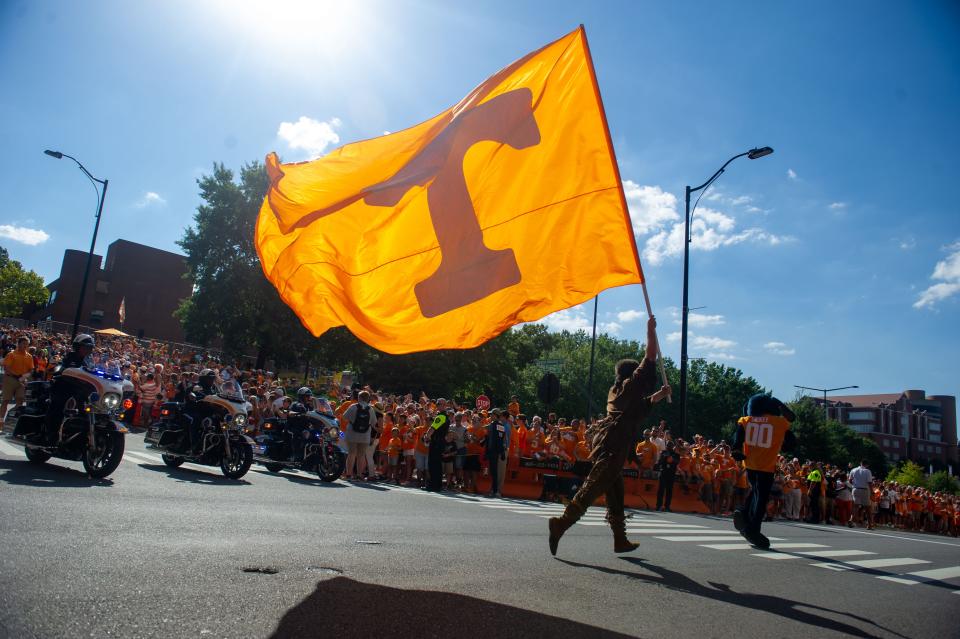In battle of NCAA vs. skilled lawyers, I'll take the Wilder, Wilder West of NIL | Toppmeyer

The NCAA reacquainted itself with a familiar nightmare this week.
His name is Tom Mars.
The Arkansas-based lawyer who made a name for himself (not to mention quite a nice career) as a crusader for athletes in NCAA transfer-waiver cases is ready to once again be a thorn in the side of college sports’ governing body.
The NCAA is investigating Tennessee for possible violations of its meager, ever-changing NIL guidelines. This inquiry reportedly involves Tennessee quarterback Nico Iamaleava and his NIL deal with Spyre Sports, the Knoxville-based sports marketing group that facilitates Tennessee’s NIL collective.
Mars to the rescue?
In a statement released Tuesday on behalf of Spyre, Mars wrote that Iamaleava’s agreement with Spyre was consistent with the NCAA’s NIL guidelines.
Mars elaborated in a social media post: “The NCAA has made college sports the only industry in the country where the people whose hard work provides the marketable product aren’t fairly compensated,” he wrote.
Supreme Court justice Brett Kavanaugh wrote something similar in a concurring opinion in 2021 after the NCAA lost a case in the high court by unanimous vote.
If we’re placing bets in a battle of Mars vs. the NCAA, give me the lawyer who represented former coach Houston Nutt in the NCAA’s investigation of Ole Miss several years ago.
Ole Miss had been spinning a yarn that the NCAA investigation centered on Nutt, its previous coach, more so than violations by its current coaching staff under then-coach Hugh Freeze. Nutt enlisted Mars to prove that narrative was bogus. A majority of the violations occurred under Freeze, not Nutt.
You probably recall what came next.
The NCAA hammered Ole Miss, Nutt received an apology from his former employer, and Mars uncovered Freeze’s phone call to an escort service along the way, uncorking a scandal that ended in Freeze's resignation. Mars became “Better Call Tom” if you wanted to take on the NCAA. Back then, undergraduate athletes couldn’t receive immediate eligibility after transferring without receiving an NCAA waiver.
“When you have Tom Mars on the other sideline, you better buckle up,” Nutt once told the Wall Street Journal.
Mars became so good at getting athletes waivers for eligibility that he became a godfather to this modern area of athlete free agency.
So, NCAA, take Nutt’s advice and buckle up.
This time, though, the NCAA faces a bigger legal hill than one dogged Arkansas lawyer.
Now, the NCAA faces a mountain known as the Sherman Antitrust Act.
Subscribe to SEC Football Unfiltered
iTunes | Google Play | Spotify
Having murky, evolving NIL guidelines might not prove to be the NCAA’s greatest misstep. The mistake could be thinking it ever could enforce such guidelines, without either collective bargaining or antitrust exemption, which the NCAA consistently failed to secure from Congress.
Tennessee Attorney General Jonathan Skrmetti and Virginia AG Jason Miyares are suing the NCAA in an antitrust case. The suit alleges that the NCAA’s enforcement of NIL rules unfairly restrict how athletes can monetize their name, image and likeness and that such restrictions violate the Sherman Act.
“The NCAA is thumbing its nose at the law,” the attorneys general wrote in their lawsuit. “After allowing NIL licensing to emerge nationwide, the NCAA is trying to stop that market from functioning.”
TOPPMEYER: I have no sympathy for NCAA, but not much for Tennessee Vols, either. Both asked for this
ADAMS: A different Donde Plowman greeted NCAA for Tennessee NIL investigation
TENNESSEE INVESTIGATION: Is NCAA investigation another step toward organized labor in college sports?
For years, coaches, administrators and NCAA officials grumbled about the “Wild, Wild West” of the NIL and transfer marketplace, and they unsuccessfully lobbied Congress for a Hail Mary that never came.
I never saw the issue with a supposed “Wild, Wild West,” which otherwise could be translated as free-market capitalism.
Forget guardrails. Let NIL deals flow freely, unencumbered by flimsy rules.
That’s what could result from this lawsuit, if the NCAA loses the judgement – and the NCAA specializes at losing in court.
The attorneys general are asking the judge to declare that the NCAA’s NIL rules violate the Sherman Act and to grant a temporary restraining order, then a permanent injunction, that would prevent the NCAA from enforcing its guidelines on NIL recruiting inducements.
In other words, if this lawsuit succeeds, NIL becomes the Wilder, Wilder West, where inducements freely flow. College athletes and recruits could join the rest of us in acknowledging that, yes, money influences our business decisions.
Buckle up, and giddyup!
Blake Toppmeyer is the USA TODAY Network's SEC Columnist. Email him at BToppmeyer@gannett.com and follow him on Twitter @btoppmeyer.
If you enjoy Blake’s coverage, consider a digital subscription that will allow you access to all of it. Also, check out his podcast, SEC Football Unfiltered, or access exclusive columns via the SEC Unfiltered newsletter.
This article originally appeared on Knoxville News Sentinel: Tennessee investigation: In NCAA vs. skilled lawyers, give me lawyers
